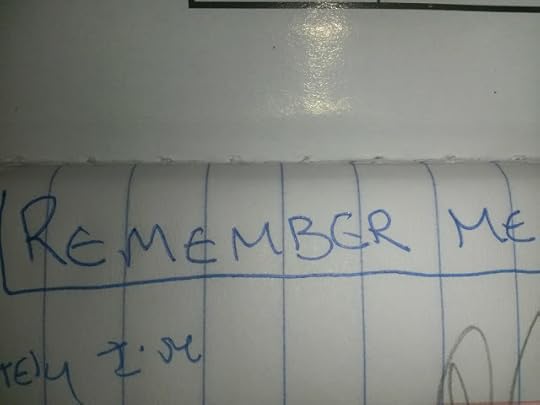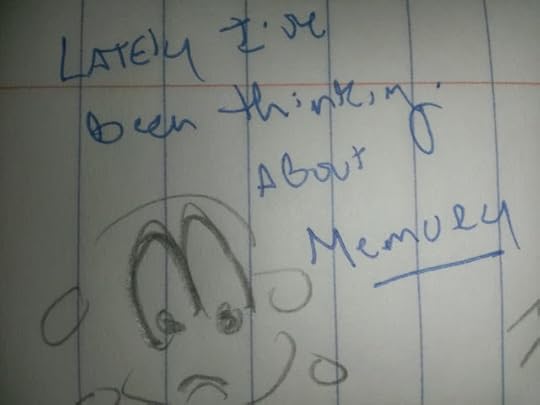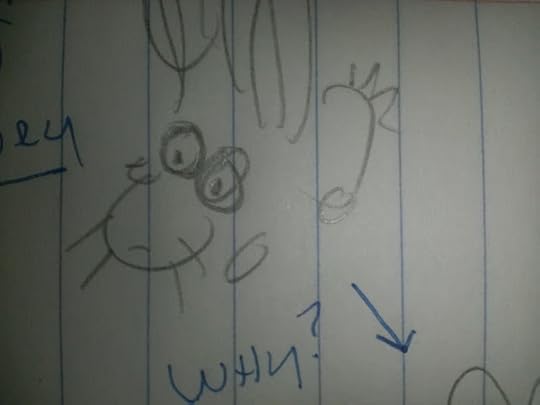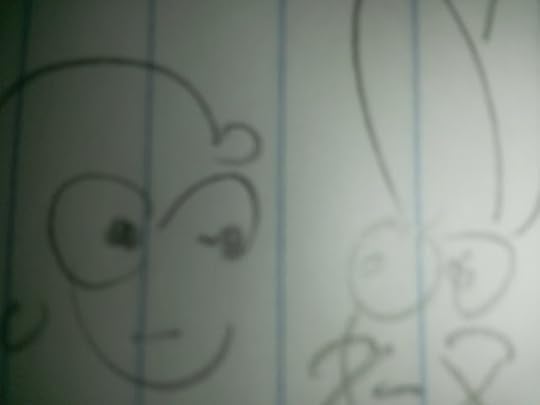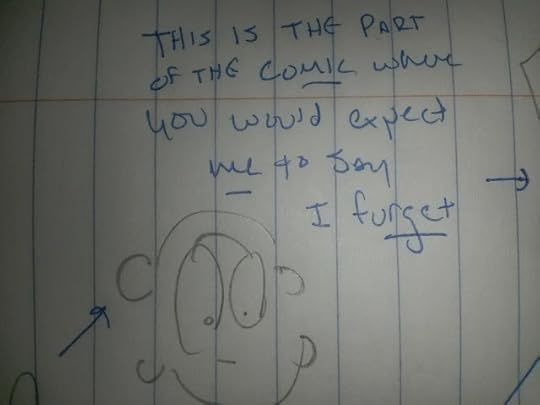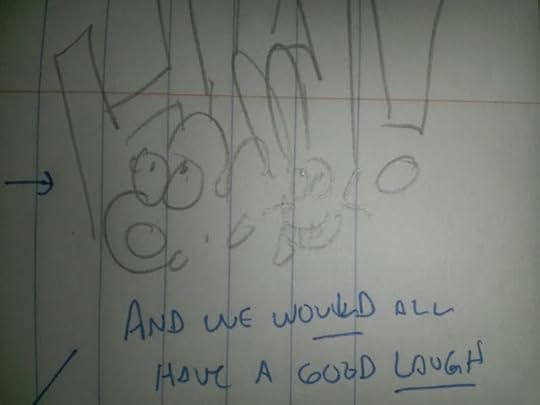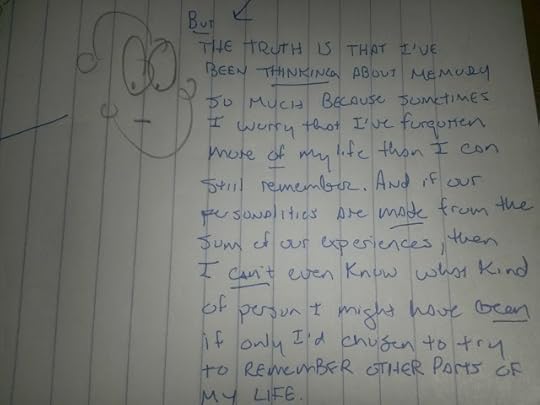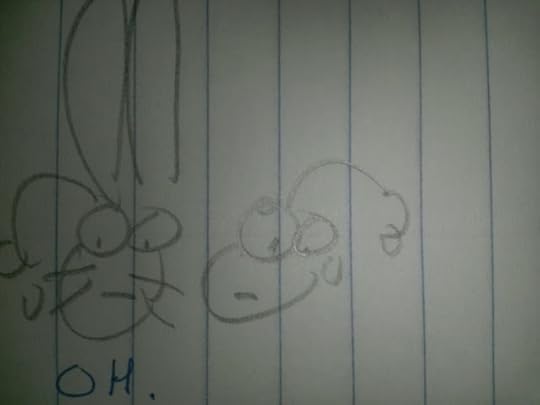Briane Pagel's Blog: Thinking The Lions, page 34
September 9, 2015
Autism vs. Bacon, or What Do You Think Of This Shirt?
Some Guy At Work emailed me a picture of this shirt. His only comment was "FYI":

He emailed me that last night, and I looked at it, read it 2 or 3 times, then closed out of email to sit quietly in Mr F's and Mr Bunches' room while Mr F fell asleep. (He won't fall asleep unless Sweetie or I are in the room).
Then I thought about it this morning, and tried to find out where it came from. No luck.
Then I asked Sweetie what she thought about it, and she said I can see what they're trying to say but I don't like it.
In my search for where the shirt came from, I came across a lot of quotes/paraphrases to the effect of "Autism isn't a tragedy, ignorance is."
Which I agree with. At my dad's funeral recently, my aunt (who has never met the boys) asked about their autism. We explained a little of it and she said "So it's like a birth defect then?"
I said "They're not defective."
There are numerous versions and makers of this shirt around on the Internet. One I found has 3900 reviews, of which 2800 were "5-star" reviews. Presumably they're not just rating the quality of the shirt material?
I don't like it.
I've decided I don't like it.
It's not just that I am so sick of hearing about $(%&$% bacon. It's not even funny anymore. Bacon just isn't that great so shut up about it you sound like a moron.
More importantly, it makes light of autism. It says that not having bacon is a greater tragedy than autism, which in one sense is true. Autism is not a tragedy any more than any other condition of life is a tragedy. It's just a way of life. There are many things Mr F and Mr Bunches might not get to do in their lives, or might not appreciate the same way we do.
Last night Mr F and I took our nightly ride. He drove along, his fingers trailing out the window in the cool breeze, smiling at me as we held hands. (I hold his hand in my car to keep him from opening the door, which does not child-lock. He is belted, safety-restrained, clipped, and then holds my hand). He didn't seem worried, or upset, or concerned. He was not worried about having gone over his data plan on the phone. He didn't have to think about law firm profits and hiring or firing employees. He didn't have 70 emails in his inbox this morning.
We don't have any idea what he does think, or worry, or laugh about. (Other than when we tickle him.) But he seems happy, and so it can't be a tragedy for him to have the life he has.
But even given that, it seems minimizing, frivolous, mean, to equate not having (#(#%& bacon as being harder to deal with than autism -- and putting it on the same level as ignorance? Ignorance and a lack of bacon are the same?
It seems like anyone who would make this shirt, or who would wear it, just doesn't get it. There was a blogger once who wrote about how she would torment (my word) her daughter by (I think?) chasing her around with a stick, because her daughter was afraid of it. She thought this was funny. I thought it was awful. There is a difference between doing things kids find fun scary, for example -- cold water, or playing hide-and-seek -- and deliberately scaring your children.
There is, similarly, a difference between making the best of a condition that makes life more difficult, and making fun of it, and I think this shirt ends up on the wrong side of that line. I think this shirt is insensitive, and stupid, and boorish. I think people who wear this shirt don't deserve to be around or know my kids, or any kids, frankly, autistic or not.
And it may be a fine line between making the best of things and making fun of things, but why do you even have to approach that line? If you want people to have a positive attitude towards autism, or to combat ignorant ideas about autism, or simply help people who have autism, aren't there like a zillion better ways to do it than to say my not having bacon (JESUS I HATE THAT) is worse than your having autism?
It's not. It's simply not. It's not even funny to pretend it is. Autism isn't a tragedy, but it is hard, for the people who have it, sometimes, for their families, sometimes, and for society in general, sometimes. We have to make special, and elaborate, plans simply to have relatives over for a holiday. Is not having bacon harder than that? For the past year-and-a-half one of us has had to sit with Mr F while he falls asleep -- sometimes as much as 2 or 3 hours -- every single night. Is not having bacon harder than that? Last night, Mr F woke up at 3:30 and I had to take him downstairs and sit with him so that Mr Bunches, at least, could get some sleep. I've been up since 3:30 a.m. Mr F gets frustrated when he can't tell us what he wants or is thinking. Mr Bunches gets tense when too many people are in a room and told a teacher that the way people breathe makes him sometimes feel like crying. We have to have a special safety harness for Mr F on his bus and in cars.
But, no, sure, you're out of f***ing bacon. I see where that would be tough, jerk.
I'm not saying it's all bad, or that parents of kids who don't have special needs don't also have problems. Of course they do. There are so many good times that I couldn't possibly capture them all if I dictated my life into a recorder. Holding Mr F's hand as we drive past farms on our rides. Having Mr Bunches serve me fake pistachio ice cream at the library, and then read through his ABC Dinosaur book again. Watching Mr Bunches make, from memory, by scratch, his pancakes. Having Mr F pull me down to the ground and say tickle tickle so that I'll snuggle with him. Listening to Mr Bunches recite all the planet (and most of the moons) in our solar system while we drive. Swinging Mr F around and around and around in circles at the Little Park On The Mountain.
Those are beautiful moments and many of them wouldn't exist if the boys weren't autistic. It's not a tragedy, to have two beautiful children, even if they are as different from us as unicorns are from a horse.
The tragedy is that people want to make money off of their condition by pretending to sympathize while all the while demonstrating how they just don't get it.
The tragedy is that there are lots of people like that in the world, and too few people like this:


He emailed me that last night, and I looked at it, read it 2 or 3 times, then closed out of email to sit quietly in Mr F's and Mr Bunches' room while Mr F fell asleep. (He won't fall asleep unless Sweetie or I are in the room).
Then I thought about it this morning, and tried to find out where it came from. No luck.
Then I asked Sweetie what she thought about it, and she said I can see what they're trying to say but I don't like it.
In my search for where the shirt came from, I came across a lot of quotes/paraphrases to the effect of "Autism isn't a tragedy, ignorance is."
Which I agree with. At my dad's funeral recently, my aunt (who has never met the boys) asked about their autism. We explained a little of it and she said "So it's like a birth defect then?"
I said "They're not defective."
There are numerous versions and makers of this shirt around on the Internet. One I found has 3900 reviews, of which 2800 were "5-star" reviews. Presumably they're not just rating the quality of the shirt material?
I don't like it.
I've decided I don't like it.
It's not just that I am so sick of hearing about $(%&$% bacon. It's not even funny anymore. Bacon just isn't that great so shut up about it you sound like a moron.
More importantly, it makes light of autism. It says that not having bacon is a greater tragedy than autism, which in one sense is true. Autism is not a tragedy any more than any other condition of life is a tragedy. It's just a way of life. There are many things Mr F and Mr Bunches might not get to do in their lives, or might not appreciate the same way we do.
Last night Mr F and I took our nightly ride. He drove along, his fingers trailing out the window in the cool breeze, smiling at me as we held hands. (I hold his hand in my car to keep him from opening the door, which does not child-lock. He is belted, safety-restrained, clipped, and then holds my hand). He didn't seem worried, or upset, or concerned. He was not worried about having gone over his data plan on the phone. He didn't have to think about law firm profits and hiring or firing employees. He didn't have 70 emails in his inbox this morning.
We don't have any idea what he does think, or worry, or laugh about. (Other than when we tickle him.) But he seems happy, and so it can't be a tragedy for him to have the life he has.
But even given that, it seems minimizing, frivolous, mean, to equate not having (#(#%& bacon as being harder to deal with than autism -- and putting it on the same level as ignorance? Ignorance and a lack of bacon are the same?
It seems like anyone who would make this shirt, or who would wear it, just doesn't get it. There was a blogger once who wrote about how she would torment (my word) her daughter by (I think?) chasing her around with a stick, because her daughter was afraid of it. She thought this was funny. I thought it was awful. There is a difference between doing things kids find fun scary, for example -- cold water, or playing hide-and-seek -- and deliberately scaring your children.
There is, similarly, a difference between making the best of a condition that makes life more difficult, and making fun of it, and I think this shirt ends up on the wrong side of that line. I think this shirt is insensitive, and stupid, and boorish. I think people who wear this shirt don't deserve to be around or know my kids, or any kids, frankly, autistic or not.
And it may be a fine line between making the best of things and making fun of things, but why do you even have to approach that line? If you want people to have a positive attitude towards autism, or to combat ignorant ideas about autism, or simply help people who have autism, aren't there like a zillion better ways to do it than to say my not having bacon (JESUS I HATE THAT) is worse than your having autism?
It's not. It's simply not. It's not even funny to pretend it is. Autism isn't a tragedy, but it is hard, for the people who have it, sometimes, for their families, sometimes, and for society in general, sometimes. We have to make special, and elaborate, plans simply to have relatives over for a holiday. Is not having bacon harder than that? For the past year-and-a-half one of us has had to sit with Mr F while he falls asleep -- sometimes as much as 2 or 3 hours -- every single night. Is not having bacon harder than that? Last night, Mr F woke up at 3:30 and I had to take him downstairs and sit with him so that Mr Bunches, at least, could get some sleep. I've been up since 3:30 a.m. Mr F gets frustrated when he can't tell us what he wants or is thinking. Mr Bunches gets tense when too many people are in a room and told a teacher that the way people breathe makes him sometimes feel like crying. We have to have a special safety harness for Mr F on his bus and in cars.
But, no, sure, you're out of f***ing bacon. I see where that would be tough, jerk.
I'm not saying it's all bad, or that parents of kids who don't have special needs don't also have problems. Of course they do. There are so many good times that I couldn't possibly capture them all if I dictated my life into a recorder. Holding Mr F's hand as we drive past farms on our rides. Having Mr Bunches serve me fake pistachio ice cream at the library, and then read through his ABC Dinosaur book again. Watching Mr Bunches make, from memory, by scratch, his pancakes. Having Mr F pull me down to the ground and say tickle tickle so that I'll snuggle with him. Listening to Mr Bunches recite all the planet (and most of the moons) in our solar system while we drive. Swinging Mr F around and around and around in circles at the Little Park On The Mountain.
Those are beautiful moments and many of them wouldn't exist if the boys weren't autistic. It's not a tragedy, to have two beautiful children, even if they are as different from us as unicorns are from a horse.
The tragedy is that people want to make money off of their condition by pretending to sympathize while all the while demonstrating how they just don't get it.
The tragedy is that there are lots of people like that in the world, and too few people like this:

Published on September 09, 2015 07:27
September 3, 2015
Picture Of The Day

On the first day of school, while waiting for the bus, Mr Bunches announced that when he grows up, he is going to be Iron Man.
Published on September 03, 2015 09:12
September 1, 2015
10 Minutes About My Theory About What The Theme Of "California" Is
 Sorry the "10 Minutes" is a day late, but Saturday I took Mr Bunches kayaking as part of his birthday present, and then spent a lot of time wrestling with Mr F to make up that he didn't get to go kayaking, and then yesterday I was suffering all day from a massive asthma attack. I could barely breathe and had to use all my medicines to make it through the day.
Sorry the "10 Minutes" is a day late, but Saturday I took Mr Bunches kayaking as part of his birthday present, and then spent a lot of time wrestling with Mr F to make up that he didn't get to go kayaking, and then yesterday I was suffering all day from a massive asthma attack. I could barely breathe and had to use all my medicines to make it through the day.But I'm better, a bit, today!
First off I should say that I do not believe in themes or metaphors or similes or synecdoches, the latter of which is a very very specific kind of comparison that I remember from like 10th grade English. A synecdoche is when you use a part to represent the whole of a thing. The specific example I remember had something to do with a claw representing the whole crab. I think it was in a Tennyson poem.
I remembered all of that without looking a single thing up. Now I am going to see if I can go track down that particular synecdoche.
Rats. It was T.S. Eliot in "The Love Song Of J. Alfred Prufrock."
So the point is that I rarely believe that authors deliberately set out to have their story be an extended metaphor for this or that, or have a theme, or allow their poem to be a comment on something. The reason I refuse to generally believe that is (a) where are all the authors' notes saying oh by the way this poem is actually about the proposal that the US switch to the silver standard, and (b) whenever people do try to have a deliberate theme/metaphor, it comes across as hamhanded and clumsy.
That said, I think there was a theme, or message, to California, which I finished, and I'm not sure if Eden Lepucki intended this to be a theme, or even if she would agree with me that this is a theme, but I'm pretty sure I nailed it.
The theme is that even a suspicion of privilege and luxury will tear a society apart.
Maybe I've been too drawn in by the way we almost, almost had a decent class war about two years back. Remember #Occupy? Remember the 1%? Remember how our economy got destroyed completely and then all the government money went to help the rich out while the rest of us struggled through? I know, ancient history, right? But I felt like America was really really close to righting some wrongs back then, all those many (5) years ago, before Obama turned into another irrelevant second-term president (we should just impose limits of 1 term, or remove the restriction entirely. The only president to accomplish anything in his second term was FDR) and before America got distracted by arguing about how we'll never take away anyone's guns/impose reasonable restrictions on the police, regardless of how many innocent people die in the streets while their families watch.
*whew* Deep breath.
I've never really stopped thinking about how we need a good (nonviolent) French Revolution in this country, and California seems to depict what will happen if we don't have one -- and why, perhaps, our basic natures will never let us have a really good society, anyway. Not that we couldn't have an okay one, but that's all it will ever be, in Lepucki's mind.
Mild spoilers ahead. Lepucki never does explain exactly what happened to the world; it remains mystifying how things fell apart, and even how apart they are. At one point there's a discussion of the Communities (rich enclaves separated from the rest of society) importing things from Mexico, but that's really the only mention of the rest of the world.
Other mysteries get solved, and in the end, the plot hinges on the tiniest, tiniest possible device you could imagine. Apocalypse, as I've said before, means revelation -- not destruction, the way people think of it. Translated as literally as possible, it means the disclosure of something hidden. That makes California both the most literal apocalyptic book I've read, and the one that works on the smallest scale. While the world is falling apart, for much of the book we're alone (or mostly alone) with Cal and Frida, and Frida may be pregnant, too. When they venture past their house and meet people living on "The Land," they realize both how much they missed society, and also why they didn't always miss it. "The Land" is a group of people living in a sort of commune formed by moving into an old ghost town that used to be a tourist attraction. While superficially it's peaceful and pleasant, there are (of course!) warning signs and unsettling things, like how everyone is more or less the same age except for a few people. Cal and Frida go to "The Land" through a maze of almost-sculptures that look like massive spikes, and then are taken in and given a week or so to fit in before the settlers on The Land vote whether or not to let them stay.
Cal and Frida each at various points after arriving realize how much they like it -- there are amenities like razors, and cocoa powder -- and how much they miss their life with just the two of them. (Which sort of echoes what I said a while back about how post-apocalyptic books may be popular because they represent an extreme form of escapism, getting away from the humdrums of our daily lives commuting and paying bills, etc.)
In the end, the real threat (I'm being careful not to spoil too much because you should read this book) comes not from any particular outsider or group or person (although there is some of that) but from the way people resent any luxury anyone else even possibly may have. There are still haves and have-nots in The Land, and in the post-apocalyptic world in general, although what they have (or not) may be wildly different than what we value nowadays. Regardless, Cal and Frida, and the people on The Land, and everyone, continue to sort and resent others based on perceived luxuries and privileges, and that's what leads to the climax of the book, which is both thrilling and, as I said, oddly small, in a personal kind of way.
California is sort of a companion to Footfall: where Footfall showed a world ending (or changing, revealing itself) on a grand scale, California homes in on the smallest aspects of that same kind of thing. Two people, sharing moments like when they realize that they have hot water, or that one has found a favorite pillow again, and then trying to navigate a world that hasn't changed enough to become unfamiliar in a reasonable way: it's all the little shifts that make California so terrible. If it were just a wasteland a person's mind could cope better, maybe, but with everything seeming just almost right, it's somehow worse. The entire country has become an uncanny valley, and people really spend their time trying to preserve their old way of life, even when doing so means that they're doomed to fail.
California tells a really haunting story about people who have given up their futures to try to cling to a past they didn't even like. Part of it is the past they can't let go of, the class divisions and petty and grand resentments and suspicions that someone, somewhere, is living better than they are and shouldn't be; the other part of it is the past as they've idealized it, stuck in glycerine, recreated in clumsy ways. The two combined mean that the future of the society in the book will likely kill itself well before whatever calamity has befallen the world.
It's a chilling message wrapped into what would seem to be a heartwarming tale. The ending is a morbid, cold twist on Hollywood's happy ending. It's not happy at all, and you'll only understand why if you read it. Which you should.
I know this is sort of jumbled. I'm still sort of tired and haven't sorted it all out yet. It's a book that not only was enjoyable to read, but made me think, in a very good way. It's the kind of book that sticks with you and has the potential to change how you view the world. It's revelatory, in that way. It's apocalyptic.
Published on September 01, 2015 18:34
August 28, 2015
Friday Five: Five Specific Comic Strips I Remember From Long Ago, For Some Reason
About the only thing I miss from newspapers is the comics page. I know there are comics on the Internet but it's not really the same.
1. I'm A Reasonable Man, Doonesbury.

So I was kind of a weird kid. I used to check out Doonesbury collections from the library, and one of the first was one from the 1970s in which Duke went and became the governor of American Samoa, with Zonker as his lieutenant governor. I had no idea what many of the strips were about, but they helped me piece together, slowly, lots of things that were going on around me in the world.
I don't know why this strip is the one that stuck with me, though. It just has. I think of it everytime it snows, for one thing. It will start to snow and I will think I'm a reasonable man, so I know this isn't snow, and chuckle, and I never explain (before now) what I'm thinking.
2. I didn't even do it yet, Calvin & Hobbes:

This strip is twenty-eight years old. I think of it about once a week. What do you suppose Calvin would've grown up to be? I sometimes listen to Mr Bunches talk about his plans. He was playing with his planetarium the other day and he told me that he's going to be an astronaut and go to Saturn, and also he would be a policeman. He watches science experiments on Youtube and then has us recreate them. Mr F, meanwhile, tears through the house and neighborhood laughing hysterically, have us chase and wrestle him, swinging acrobatically. They both play games they make up on the fly.
I used to think, when I read and re-read and re-re-read Calvin & Hobbes that it would be kind of awesome to have a kid like Calvin. I think I got two of them.
3. Could You Go To Your Window, The Far Side.

I mean I get why this is funny but I have nightmares about it.
4. Beethoven, Peanuts.

When I was a kid I read a lot, and I did not talk to people a lot. I read a lot of comics especially. I also took piano lessons. I was shocked when my piano teacher taught me Fuur Elise, and said it was by "Bate-Hoven."
I'd always pronounced Beeth in a way that rhymed with teeth, oven, like the stove.
5. Made Or Just Happened, Bloom County.

Made first, then set loose to see what happens.
1. I'm A Reasonable Man, Doonesbury.

So I was kind of a weird kid. I used to check out Doonesbury collections from the library, and one of the first was one from the 1970s in which Duke went and became the governor of American Samoa, with Zonker as his lieutenant governor. I had no idea what many of the strips were about, but they helped me piece together, slowly, lots of things that were going on around me in the world.
I don't know why this strip is the one that stuck with me, though. It just has. I think of it everytime it snows, for one thing. It will start to snow and I will think I'm a reasonable man, so I know this isn't snow, and chuckle, and I never explain (before now) what I'm thinking.
2. I didn't even do it yet, Calvin & Hobbes:

This strip is twenty-eight years old. I think of it about once a week. What do you suppose Calvin would've grown up to be? I sometimes listen to Mr Bunches talk about his plans. He was playing with his planetarium the other day and he told me that he's going to be an astronaut and go to Saturn, and also he would be a policeman. He watches science experiments on Youtube and then has us recreate them. Mr F, meanwhile, tears through the house and neighborhood laughing hysterically, have us chase and wrestle him, swinging acrobatically. They both play games they make up on the fly.
I used to think, when I read and re-read and re-re-read Calvin & Hobbes that it would be kind of awesome to have a kid like Calvin. I think I got two of them.
3. Could You Go To Your Window, The Far Side.

I mean I get why this is funny but I have nightmares about it.
4. Beethoven, Peanuts.

When I was a kid I read a lot, and I did not talk to people a lot. I read a lot of comics especially. I also took piano lessons. I was shocked when my piano teacher taught me Fuur Elise, and said it was by "Bate-Hoven."
I'd always pronounced Beeth in a way that rhymed with teeth, oven, like the stove.
5. Made Or Just Happened, Bloom County.

Made first, then set loose to see what happens.
Published on August 28, 2015 19:42
August 26, 2015
Until we meet again, summer. Until we meet again.
Last night, I asked Mr Bunches what playground the three of us should go to. He picked the playground in back of their school, where they'll start 3rd grade this year.
It's been 60 degrees each day this week, and cloudy. There are only 130 hours left until September 1. People on the radio are talking about football, and the shadows have that look they get when the days get shorter.

Summer is over.
It's been 60 degrees each day this week, and cloudy. There are only 130 hours left until September 1. People on the radio are talking about football, and the shadows have that look they get when the days get shorter.

Summer is over.
Published on August 26, 2015 11:26
August 25, 2015
Rabbit, And Frog: "Remember Me"
Published on August 25, 2015 17:57
August 24, 2015
10 (More) Minutes about "California" and its apocalyptic marriage.
 I'm about 1/2way through California and there are two things that I find both fascinating and compelling about the book. First is how nothing seems to happen and yet the story keeps just pulsating forward with energy, and the second is how the book seems to really be about Cal and Frida's relationship.
I'm about 1/2way through California and there are two things that I find both fascinating and compelling about the book. First is how nothing seems to happen and yet the story keeps just pulsating forward with energy, and the second is how the book seems to really be about Cal and Frida's relationship.The latter first: As I might have mentioned the last time I talked about this book, it's an apocalypse-happening book. Civilization hasn't completely broken down: there are walled-off communities and there is still electricity and consumer goods and gasoline, but people can't afford anything and something like 2/3 of the people in the US' Midwest and South have died in blizzards. (There is also no mention, ever, of other countries.) While the end of society seems pretty far advanced, it's not dead yet.
All of this is told matter-of-factly and as part of the story: Cal's mom died in the blizzards, and Cal and Frida sold their heirloom wedding rings to get enough money to buy gas to leave LA, and as we get these details little bits and pieces slip in about the world at large, so while it's exposition, it's done in a stylish way that doesn't detract from the book.
The more I read, though, the more I keep thinking there are parallels between society and Cal and Frida's marriage: just as we don't really know what happened to the US (it seems to be a mix of scarce fuel and global warming, maybe, destroying the economy as well as people, but that's just a guess), we don't really know much about Cal and Frida's marriage or relationship. Their story jumps back and forth from how they met (at Cal's school where Frida's brother Micah, a terrorist who blew himself up in a bombing at a mall, just after saying, cryptically, "Listen") to their life now to their life in LA to their childhoods, and each new piece of information subtly changes the way we look at both Cal and Frida. It's really, really well done. I once wrote a book in which I deliberately jumped the story back and forth to give the reader a feel for how we actually get to know people: when you meet someone, you don't just get their whole life story chronologically. You get some information up front and then get to know them in everyday life while getting little bits of history here and there. I think I did pretty well at that task, but Eden Lepucki is so much better at it that it leaves me kind of in awe. She makes characters sympathetic and then unlikeable and then mysterious and then back again, all in a few chapters.
As she does that, too, there's more and more a sense of uneasiness about their marriage. At the start of the book the marriage seems like a rock, just a solid piece of emotion that holds fast in a weird upturned world, but now, halfway through, the marriage feels like it's ready to break apart, almost, if it was ever together. I don't know if I'm reading too much into it, but the parallel feeling between the marriage and what happened to society is really amazing, and unsettling: this couple, who a reader will start out liking and rooting for, suddenly is not such a great couple at all and may not have much future. Or they do.
That feeling, the uneasiness, is the hallmark of the book. It almost feels like there is something big around the corner, at all times. Not like in a horror movie, say, where a character is about to look in a mirror or open a door and you can feel that the monster is going to appear. There's just a feeling of dread, mixed with excitement. I mentioned before, I know, that post-apocalyptic books represent a kind of freedom, a release from society's strictures. There's an element of that here, and that's where the excitement comes from. Cal and Frida are free to form a brand new kind of life without any interference.
But dread, too, because it's clear they're just on the edge of survival: we keep getting information about how little food they have, and how cold it gets. I won't provide any spoilers, but Lepucki also keeps shifting the information around, revealing bits and pieces of the story so that your expectations are constantly mixed around.
I said that nothing much happens, which is not quite true. There are big events that take place, but they seem muted, distant, less immediate than Cal and Frida's own struggles for survival and struggles with themselves and each other. The first really big thing just happened to the couple, and while it's inarguably a big deal in the book (again, no spoilers here), it somehow feels anticlimactic, like this big thing is only a prelude to the next big thing.
The book has an edgy feel to the comfort, like the feeling you'd get if you invited someone you didn't like much to your Xmas party. It's ... enthralling. That's the word I'd use. I read it last night until I couldn't even keep my eyes open and then I put the book aside and just laid in my bed thinking about it until I fell asleep.
Published on August 24, 2015 18:18
I'll get to the 10 minutes later today but...
 In the meantime I've started a new thing, and since the posts are longer than I like to do here, now, I've set it up on its own site.
In the meantime I've started a new thing, and since the posts are longer than I like to do here, now, I've set it up on its own site.The new thing is called
"Adventure Squad!!"
It's sort of a travelogue about our adventures with the boys: humorous reviews of (mostly) free stuff we do.
If you get a chance, check it out. The posts are long, so leave some time to read them. They'll be put about about 1 every 1 or 2 weeks, and I'll note here when I do.
In addition to discussions of the places we travel to (mostly around our house) the entries contain scathing social commentary (the rich own death rays!), interesting tidbits about stuff (do you know why we call it a See Saw?) and the usual stream-of-consciousness string of non sequiturs you've come to expect from me.
Here's a sample from the first post, "Four Corners Park: Live Like The Rich Play!"
So I turned right and turned around in the driveway of a rich person, thereby lowering their property values by 0.00001% ("A middle class person drove here, didn't they?" future home buyers will ask, instinctively feeling the presence of a car bought on sale and used to transport generic sodas from Woodmans.)______________
We drove back again, looking more closely, and I caught a glimpse of what might have been a swingset through a break in the trees.
"It's Four Corners playground," I told the other Adventurers, who greeted me with silence because they were reading books about the solar system and/or trying to get out of the elaborate system of harnesses some of them must be rigged into to avoid them clambering all over the car as others of us drive.
"Should we get out?" I asked.
Silence.
Click here to read the rest.
Published on August 24, 2015 12:03
August 23, 2015
Friday Five: Five Poems I Read Wednesday Night (Poem 4)
I didn't forget about these:
Because I cannot remember my first kiss
Roger Bonair-Agardbut I remember sitting alone on the brown
couch in my grandmother’s living room,
couch whose cushion covers were of velvet
and the color of dark rust, or dried blood
—and sewn by the tailor from up the block,
the same one who made me my first light blue
suit two years earlier
And I sat there running my hands back
and forth
over the short smooth hairs of the fabric
and understanding what touch meant
for the first time—not touch, the word,
as in don’t touch the hot stove or don’t
touch your grandfather’s hats but touch
like Tom Jones was singing it right then
on the television, with a magic that began
in his hips, swiveled the word and pushed
it out through his throat into some concert
hall somewhere as a two-syllabled sprite,
so that women moaned syllables back in return.
And I knew I wanted to touch
like that because
Tom Jones stooped down at the edge
of the stage and a woman from the audience
in a leopard-print jumpsuit unfurled
from her front row seat, walked like
a promise of what I couldn’t quite
discern up to him and pushed her mouth
soft and fast up against his mouth
and they both cooed into his microphone
mouths still move-moaning together
like that for an eternity. And then
Tom Jones unlocks his mouth from hers
while my breath is still caught
in my throat, and moves to the other
end of the stage, and squats there,
and kisses another woman from the audience
in a black jumpsuit, while the first
woman looks on, swaying so slightly
I almost can’t tell—to the band
which is still vamping the chorus line—
mesmerized and taut with expectation as I
am, palms down on the velvet-haired
cushions and Tom pauses, sensing
the first woman’s impatient almost-mewling
and says Easy Tiger while he moves his mouth
against this woman’s, his cheeks working
like tiny bellows, before returning to the first
one and then the bridge or the chorus
or whatever—at that point the song
is an afterthought, and I knew there was
a mission to be fulfilled—Tom Jones
pointed to the women and said touch
and the new color TV made everything
shimmer with promise so my eight year old
body preened and stretched itself against
the ecstatic couch and dreamed of what
tomorrow could be like if I could make
touch mean so many things, if I could
make a building or a body coo like this.
_________________________________________________________________
Memory is very much on my mind, nearly every day. We are the sum total of our memories; or perhaps we are the sum total of all the things we can no longer remember.
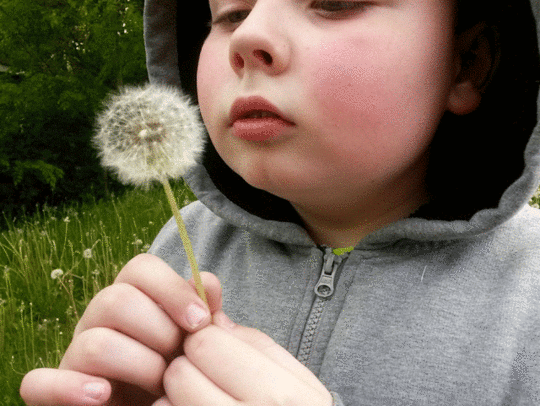
Because I cannot remember my first kiss
Roger Bonair-Agardbut I remember sitting alone on the brown
couch in my grandmother’s living room,
couch whose cushion covers were of velvet
and the color of dark rust, or dried blood
—and sewn by the tailor from up the block,
the same one who made me my first light blue
suit two years earlier
And I sat there running my hands back
and forth
over the short smooth hairs of the fabric
and understanding what touch meant
for the first time—not touch, the word,
as in don’t touch the hot stove or don’t
touch your grandfather’s hats but touch
like Tom Jones was singing it right then
on the television, with a magic that began
in his hips, swiveled the word and pushed
it out through his throat into some concert
hall somewhere as a two-syllabled sprite,
so that women moaned syllables back in return.
And I knew I wanted to touch
like that because
Tom Jones stooped down at the edge
of the stage and a woman from the audience
in a leopard-print jumpsuit unfurled
from her front row seat, walked like
a promise of what I couldn’t quite
discern up to him and pushed her mouth
soft and fast up against his mouth
and they both cooed into his microphone
mouths still move-moaning together
like that for an eternity. And then
Tom Jones unlocks his mouth from hers
while my breath is still caught
in my throat, and moves to the other
end of the stage, and squats there,
and kisses another woman from the audience
in a black jumpsuit, while the first
woman looks on, swaying so slightly
I almost can’t tell—to the band
which is still vamping the chorus line—
mesmerized and taut with expectation as I
am, palms down on the velvet-haired
cushions and Tom pauses, sensing
the first woman’s impatient almost-mewling
and says Easy Tiger while he moves his mouth
against this woman’s, his cheeks working
like tiny bellows, before returning to the first
one and then the bridge or the chorus
or whatever—at that point the song
is an afterthought, and I knew there was
a mission to be fulfilled—Tom Jones
pointed to the women and said touch
and the new color TV made everything
shimmer with promise so my eight year old
body preened and stretched itself against
the ecstatic couch and dreamed of what
tomorrow could be like if I could make
touch mean so many things, if I could
make a building or a body coo like this.
_________________________________________________________________
Memory is very much on my mind, nearly every day. We are the sum total of our memories; or perhaps we are the sum total of all the things we can no longer remember.

Published on August 23, 2015 09:53
August 22, 2015
Well we made $42
And nobody even bought the big TV? *sigh* Then I took all the old books and CDs and DVDs to Half-Price Books, where I sold them and used the money to buy new (used) books to take home.
Most of the toys and stuff was dropped off at the St. Vincent De Paul Society store as a donation. I don't think I'll be quitting my day job just yet but it's nice to have all that clutter gone and a couple extra bucks.

Plus for about two hours Mr F was my helper. In between customers I'd tickle his head or we'd spin each other around in the street.

Most of the toys and stuff was dropped off at the St. Vincent De Paul Society store as a donation. I don't think I'll be quitting my day job just yet but it's nice to have all that clutter gone and a couple extra bucks.

Plus for about two hours Mr F was my helper. In between customers I'd tickle his head or we'd spin each other around in the street.

Published on August 22, 2015 15:06
Thinking The Lions
Do you think people invented "Almond Joy" and then thought "we could subtract the almonds and make it a completely different thing?" or did they come up with "Mounds" first and then someone had a brot
Do you think people invented "Almond Joy" and then thought "we could subtract the almonds and make it a completely different thing?" or did they come up with "Mounds" first and then someone had a brother-in-law in the almond business? And anyway did you ever notice that the almond creates a little mound and that "Mounds" are flat?
I'm probably overthinking this. ...more
I'm probably overthinking this. ...more
- Briane Pagel's profile
- 14 followers


